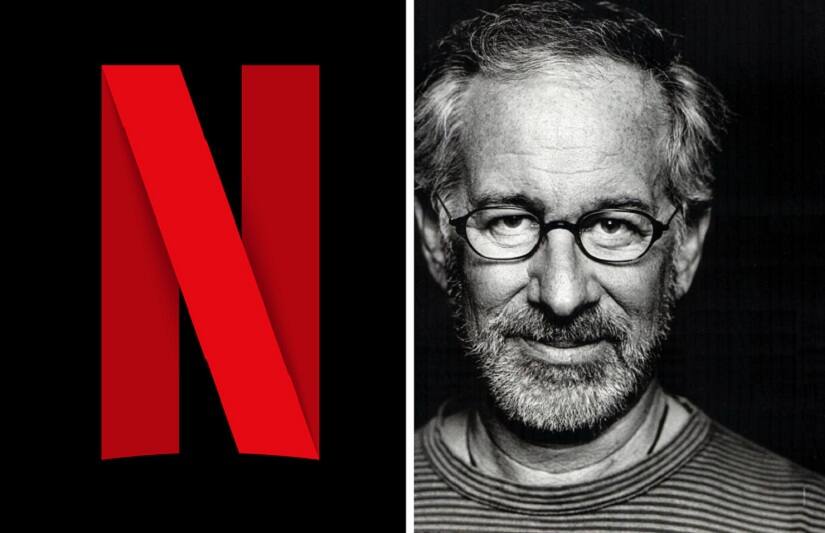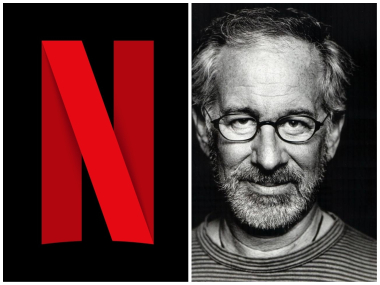If you haven’t heard of or seen Duel — Steven Spielberg’s first full-length film, which marked his directorial debut and established him as a talent to watch out for — then you’d probably brush aside the filmmaker’s recent comments on
Netflix movies not deserving Oscars
as a ‘senior moment’. It’s not that Spielberg — among the most successful filmmakers of all time — can’t adapt to or compete with the online streaming platform. However, the manner in which
Duel
’s legacy was robbed of its cinematic greatness, all because it was made for television, might offer some insight into why Spielberg said what he did. Spielberg’s dislike for films made for a non-cinematic platform (for instance, Netflix) is not the first instance where a leading filmmaker has expressed such sentiments. Christopher Nolan, who is religiously devoted to preserving the film format, called Netflix’s movies strategy ‘
pointless’
, saying the streaming giant has a bizarre aversion to supporting theatrical films. Nolan felt that the decision to simultaneously stream and release films was “obviously an untenable model for theatrical presentation”. Spielberg has not openly said he will never work with Netflix, but he is also among the first to ask for a clear demarcation for films based on their platform. [caption id=“attachment_4457085” align=“alignnone” width=“825”]
 Steven Spielberg’s dislike for films made for a non-cinematic platform (for instance, Netflix) is not the first instance where a leading filmmaker has expressed such sentiments[/caption] At the 2017 Cannes Film Festival, the line dividing the purists and the rest became very visible when Bong Joon-Ho’s Okja (that was produced by Netflix) premiered and was booed as the company logo appeared on the screen. It was after the Okja screening that the Cannes festival laid down the rule that any film in the competition segment must commit to theatrical distribution. Around the time Spielberg commented on Netflix, Cannes Film Festival director Thierry Fremaux also gave an interview to Variety
magazine_,_ where he summed up what a Netflix or Amazon need to do, to get a seat at the table of greatness: Fremaux said while Netflix and Amazon did represent “something important” in order for a film to become part of history, it must “go through theaters, box office, the critics, the passion of cinephiles, awards campaigns, books, directories, filmographies”. A month after Fremaux’s interview, the Los Angles Times
reported that Netflix was considering purchasing theaters — ostensibly to gain an Oscar edge. If this is right then this could be the latest game-changing move from Netflix. In 2018 itself, Netflix will release 80 original films, and none of these will be given
theatrical releases
. But this new move could, in fact, contribute to giving film a shot in the arm. One of the reasons why Netflix could be looking to buy theaters might have to do with their films getting a fighting chance with other, real films at the Oscars, etc. Moreover, it could also ensure the availability of a screen when a relatively smaller film releases. During the summer where a Star Wars would gobble up all available screens, Netflix-operated theaters could actually play an indie film or even one of their original shows on the big screen. Imagine catching the latest episode of Orange is the New Black or binge-watching House of Cards in two marathon six-hour sessions at a cinema near you! Despite Netflix’s rumored move, Spielberg maintains that once you commit to a television format, you are a TV movie and simply screening a film in a cinema hall for a week does not change your stature. It, however, allows you to circumvent certain technicalities that often come in the way of prominence being attached to a film. Take for instance the case of composer Nino Rota’s score of The Godfather (1972); the Oscar-nominated score was declared ineligible after it was learned that his love theme was written for a 1958 Italian film. Similarly, Spielberg’s Duel was shown on American television as a ‘Movie of the Week’ but even after the film was theatrically released in cinemas in Europe and Australia it was never in the running for any film award as it was a ‘TV Movie’.
Steven Spielberg’s dislike for films made for a non-cinematic platform (for instance, Netflix) is not the first instance where a leading filmmaker has expressed such sentiments[/caption] At the 2017 Cannes Film Festival, the line dividing the purists and the rest became very visible when Bong Joon-Ho’s Okja (that was produced by Netflix) premiered and was booed as the company logo appeared on the screen. It was after the Okja screening that the Cannes festival laid down the rule that any film in the competition segment must commit to theatrical distribution. Around the time Spielberg commented on Netflix, Cannes Film Festival director Thierry Fremaux also gave an interview to Variety
magazine_,_ where he summed up what a Netflix or Amazon need to do, to get a seat at the table of greatness: Fremaux said while Netflix and Amazon did represent “something important” in order for a film to become part of history, it must “go through theaters, box office, the critics, the passion of cinephiles, awards campaigns, books, directories, filmographies”. A month after Fremaux’s interview, the Los Angles Times
reported that Netflix was considering purchasing theaters — ostensibly to gain an Oscar edge. If this is right then this could be the latest game-changing move from Netflix. In 2018 itself, Netflix will release 80 original films, and none of these will be given
theatrical releases
. But this new move could, in fact, contribute to giving film a shot in the arm. One of the reasons why Netflix could be looking to buy theaters might have to do with their films getting a fighting chance with other, real films at the Oscars, etc. Moreover, it could also ensure the availability of a screen when a relatively smaller film releases. During the summer where a Star Wars would gobble up all available screens, Netflix-operated theaters could actually play an indie film or even one of their original shows on the big screen. Imagine catching the latest episode of Orange is the New Black or binge-watching House of Cards in two marathon six-hour sessions at a cinema near you! Despite Netflix’s rumored move, Spielberg maintains that once you commit to a television format, you are a TV movie and simply screening a film in a cinema hall for a week does not change your stature. It, however, allows you to circumvent certain technicalities that often come in the way of prominence being attached to a film. Take for instance the case of composer Nino Rota’s score of The Godfather (1972); the Oscar-nominated score was declared ineligible after it was learned that his love theme was written for a 1958 Italian film. Similarly, Spielberg’s Duel was shown on American television as a ‘Movie of the Week’ but even after the film was theatrically released in cinemas in Europe and Australia it was never in the running for any film award as it was a ‘TV Movie’.
What the Steven Spielberg vs Netflix row could signal for the streaming service giant, and its movies
Gautam Chintamani
• May 5, 2018, 13:38:35 IST
Steven Spielberg’s dislike for films made for a non-cinematic platform (for instance, Netflix) is not the first instance where a leading filmmaker has expressed such sentiments
Advertisement
)
End of Article